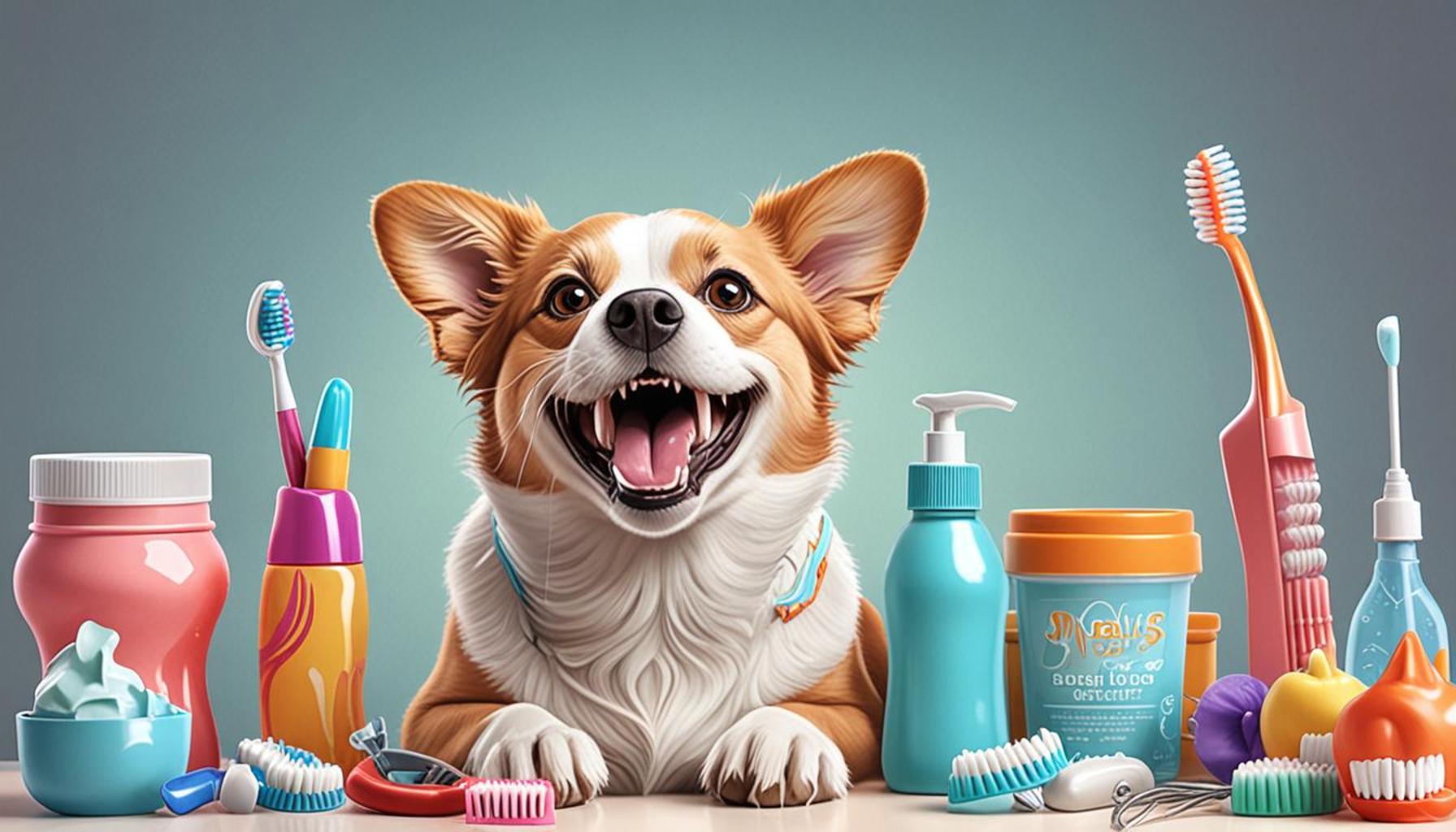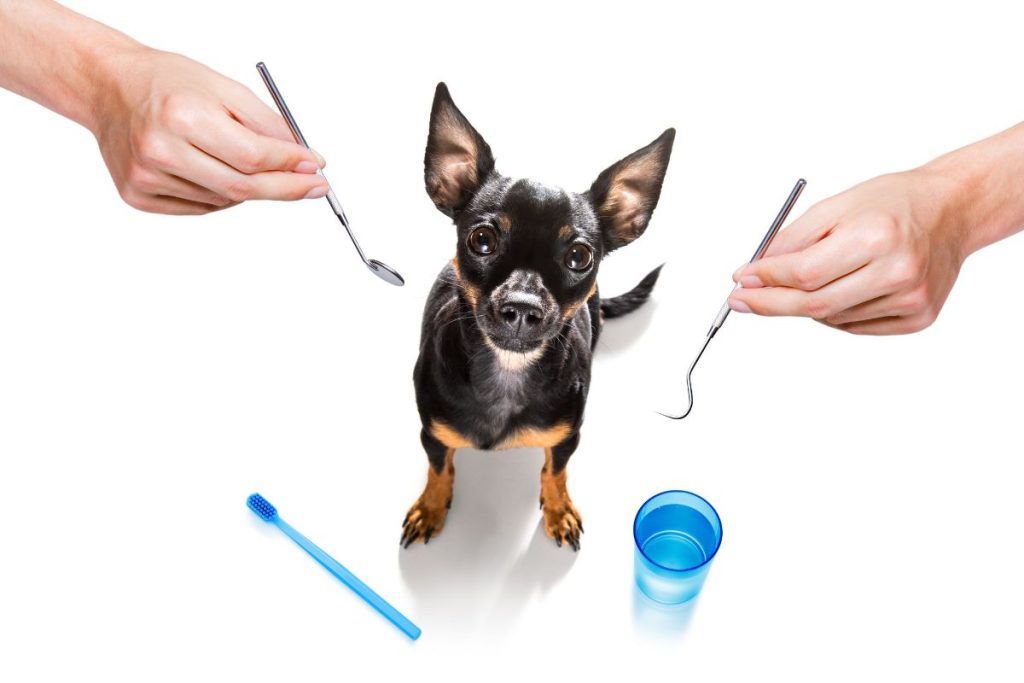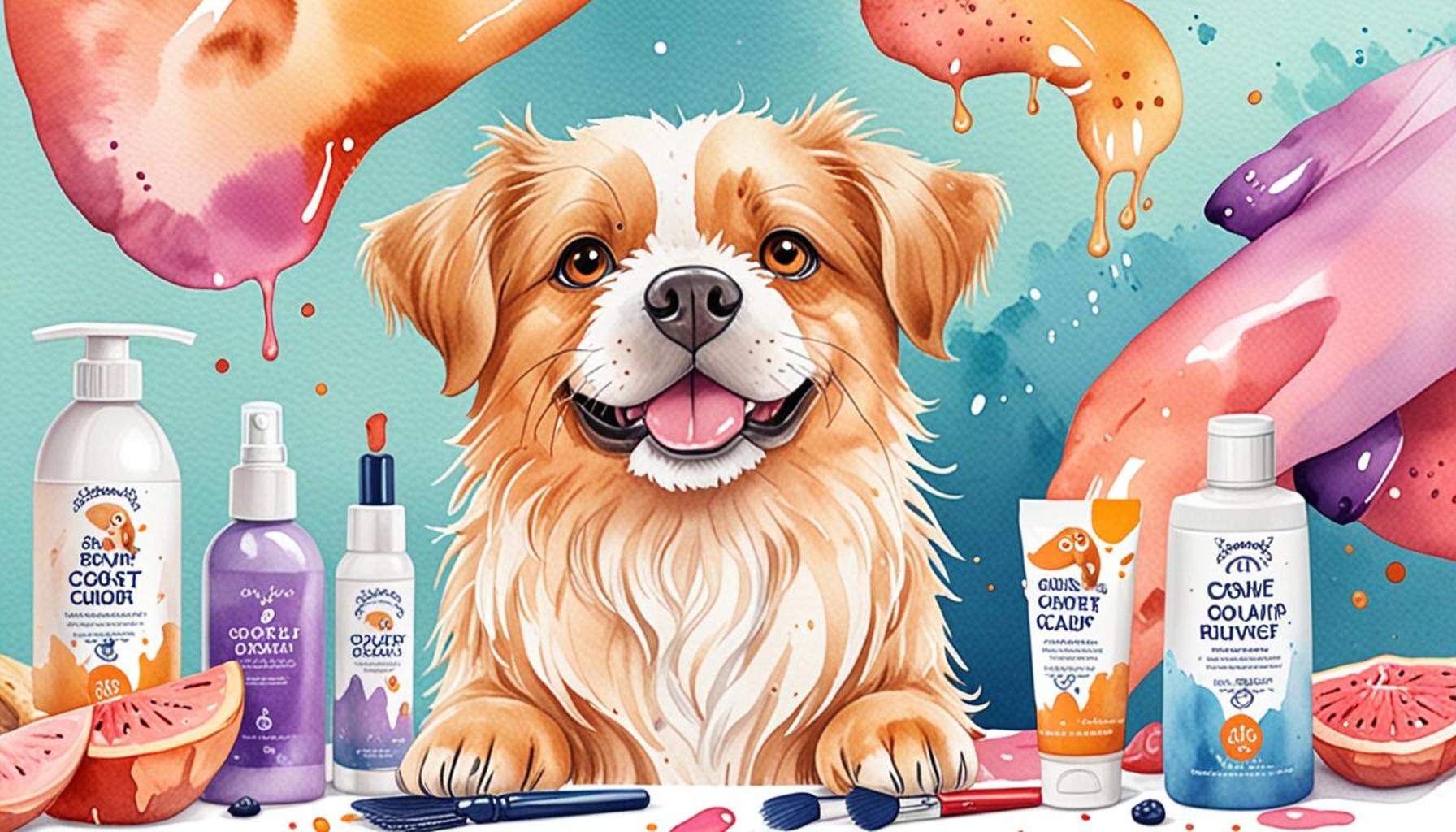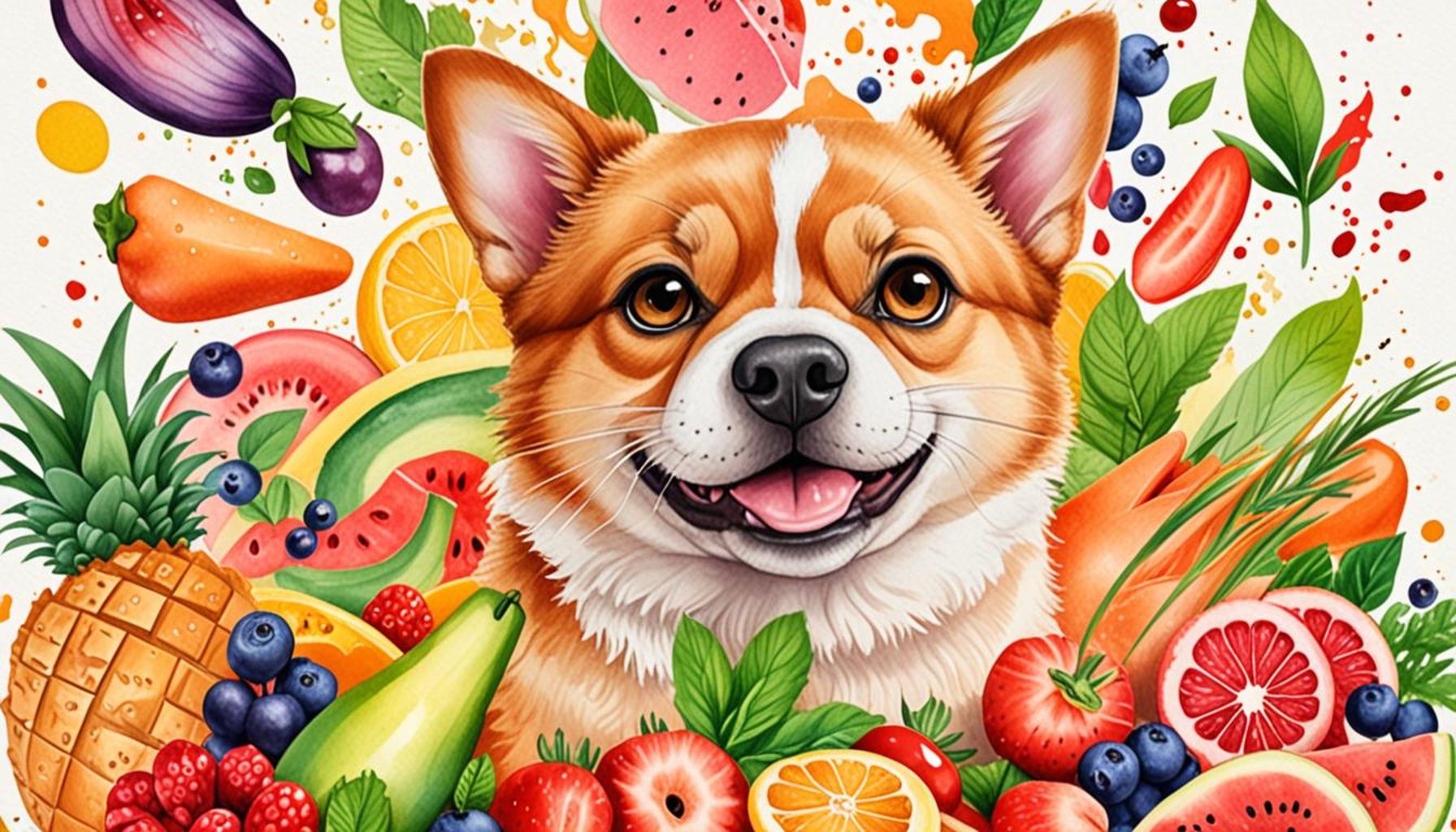Tips for Dental Hygiene and Care to Maintain Your Pet’s Oral Health

Navigating the Terrain of Pet Oral Health
Maintaining your pet’s dental hygiene is not just about ensuring a fresh-smelling breath; it plays a crucial role in their overall well-being. Neglecting oral care for your furry companion can result in a host of serious health issues that may not be immediately apparent. Just as humans schedule regular dental appointments and stay vigilant about their oral health, pet owners must adopt a proactive approach to their pets’ dental care.
Why Dental Care Matters
Oral health is often an overlooked aspect of pet care, yet its significance is profound. If dental hygiene is poor, your pet may suffer not only from issues localized in the mouth but also from systemic complications that could threaten their health.
- Systemic infections: Bacteria that accumulate in the mouth can enter the bloodstream and lead to heart disease, liver disease, or kidney problems. This risk underscores the importance of keeping your pet’s mouth clean to prevent these potentially life-threatening conditions.
- Increased bad breath: While often considered a minor annoyance, halitosis can sometimes be a sign of underlying dental issues. Persistent bad breath may indicate periodontal disease or other serious health problems, warranting a closer examination.
- Pain and discomfort: Pets cannot verbalize their pain as effectively as humans can. Signs like reluctance to eat, noticeable changes in behavior, or excessive licking of the mouth can indicate dental pain, affecting their happiness and quality of life.
Steps to Achieve Optimal Oral Health
Implementing basic dental care routines can significantly enhance the health of your pet’s mouth and overall well-being. Here are some effective methods:
- Regularly brush your pet’s teeth using toothpaste formulated specifically for pets. Human toothpaste is often toxic to pets, so be cautious about what you use. Start slow, allowing your pet to taste the toothpaste before introducing the toothbrush.
- Provide chew toys designed to promote dental health. Many pet stores offer options that can help reduce plaque buildup while keeping your pet entertained. Look for products endorsed by veterinary dental organizations to ensure safety and effectiveness.
- Schedule regular veterinary dental check-ups. Annual or biannual exams can catch potential issues early on, allowing for treatment before they develop into serious concerns. Some veterinarians may even offer professional cleanings to help maintain optimal oral health.
Engaging in these dental care practices will pay off in the long run, contributing to a healthier, happier pet. The journey to excellent oral health involves commitment and education, and we invite you to join us in exploring various methods and techniques for optimal pet dental care. An informed approach ensures that your furry friend enjoys a vibrant, pain-free life.
LEARN MORE: Click here to discover how to keep your pets safe and healthy at home

Essential Practices for Pet Dental Hygiene
Ensuring your pet’s oral health is not an isolated task but rather a dedicated aspect of their overall care routine. Just like regular exercise and a balanced diet, dental hygiene is integral to maintaining your pet’s health and vitality. By incorporating simple yet effective practices into your daily schedule, you can safeguard your pet against the silent threats posed by poor dental hygiene.
Understanding Common Dental Issues
Before diving into preventative measures, it’s important to understand the most common dental issues your pet may encounter. Being informed allows you to recognize warning signs and act accordingly.
- Periodontal disease: This is a prevalent condition that affects the tissues surrounding the teeth. If not addressed, it can lead to tooth loss and even severe infections. Symptoms include swollen gums, bleeding, and persistent bad breath.
- Tooth decay: Much like humans, pets can suffer from cavities caused by plaque buildup. This can lead to painful dental conditions if cavities are not addressed quickly.
- Oral tumors: Though less common, pets can develop tumors in their mouth, which may not always be visible. Owners should remain vigilant for any unusual growths or changes in their pet’s oral cavity.
Recognizing these issues is the first step toward effective prevention and care. Detecting early symptoms can make a significant difference in your pet’s treatment and care options.
Daily Dental Care Routine
Creating and sticking to a daily dental care routine can dramatically reduce the risk of serious dental issues. Here are some key components to consider:
- Regular tooth brushing: Aim to brush your pet’s teeth at least two to three times a week. For dogs and cats that resist the idea, start with shorter sessions and gradually build up to longer brushings. Using flavored pet toothpaste can help make the experience enjoyable for them.
- Dental treats and chews: Invest in treats formulated to support dental health. These not only satisfy your pet’s desire to chew but also help in controlling plaque and tartar buildup. Look for products that meet the Veterinary Oral Health Council (VOHC) Seal of Acceptance for added assurance.
- Water additives: Consider using safe dental water additives. These can be mixed in with your pet’s water bowl. They work to reduce plaque and combat bad breath effortlessly.
Implementing these elements consistently will create a robust foundation for your pet’s oral health. The goal is to make dental care an integral part of their everyday life, establishing a routine that feels natural rather than a chore.
Moreover, these small, routine actions can foster a deeper bond between you and your pet as you engage in their daily care. Taking charge of your pet’s dental hygiene is not only an obligation but also a commitment to their overall well-being and longevity.
| Category | Details |
|---|---|
| Daily Brushing | Establishing a daily brushing routine helps prevent tartar buildup and maintains fresh breath. |
| Dental Treats | Choosing dental treats designed to reduce plaque and tartar can be a fun way to promote oral health. |
| Regular Vet Check-ups | Annual veterinary check-ups can catch dental issues early, ensuring the health of your pet’s mouth and gums. |
| Water Additives | Using water additives specifically formulated for pets helps reduce bacteria in their mouths. |
Dental health is crucial for your pet’s overall well-being. By implementing these tips, you not only contribute to their longevity but also enhance their quality of life. Achieving a healthy mouth involves proactive measures, including proper diet choices and consistent care. The impact of oral hygiene extends beyond simple breath freshness—it’s fundamental for preventing serious health issues. Stay informed about the best practices and make your pet’s dental health a priority for a happier companion. Exploring the options available can lead to a healthier lifestyle for your beloved animal.
DON’T MISS OUT: Click here to learn more about the importance of ergonomics in elderly pet care
Additional Strategies for Optimal Pet Oral Health
While establishing a daily dental care routine is vital, there are numerous additional strategies and practices to further enhance your pet’s oral hygiene and overall health. These proactive measures not only aid in preventing dental diseases but also contribute to your pet’s happiness and vitality.
Regular Professional Dental Cleanings
Despite diligent home care, it is essential to schedule regular veterinary dental cleanings. Most veterinarians recommend a thorough cleaning at least once a year. During these professional cleanings, dental experts can remove tartar buildup, assess tooth and gum health, and catch potential issues early on that may be overlooked during at-home care. Veterinary dental cleanings often involve anesthesia to ensure your pet remains still and comfortable, allowing for a comprehensive examination without any stress.
Monitoring Diet for Oral Health
Your pet’s diet can significantly influence their dental health. Feeding a high-quality, balanced diet is fundamental; however, monitoring the texture and type of food can play a substantial role as well. Dry kibble, for instance, is generally more beneficial for dental health compared to soft, wet foods as it can help scrape the teeth and reduce plaque buildup. Some pet food brands even offer specially formulated dental care diets designed to minimize oral problems. Always consult with your veterinarian regarding diet adjustments — tailored recommendations can optimize your pet’s health while supporting their oral hygiene.
Consider Pet Dental Insurance
As the cost of veterinary dental care can sometimes be a concern, enrolling in pet dental insurance can alleviate financial stress. Many plans cover routine dental cleanings and unexpected dental emergencies, ensuring your pet receives the necessary care without heavy financial burden. Pet insurance can frequently be obtained at affordable rates and offers peace of mind in maintaining your pet’s oral health as part of their overall wellness journey.
Recognizing Behavioral Changes
Just as we monitor our health through various cues, your pet also communicates their well-being through behavior. Keep an eye out for changes that may indicate dental distress, such as:
- Reluctance to eat or play: A sudden change in appetite or interaction could signal pain or discomfort within the mouth.
- Excessive drooling: While drooling can be normal, excessive saliva production may indicate oral issues.
- Behavioral shifts: Increased irritability, withdrawal from interaction, or unusual grooming habits could highlight dental discomfort.
If you notice any of these troubling signs, consult your veterinarian promptly. Early intervention is critical and can often lead to better outcomes and relief for your furry friend.
Educating Yourself on Dental Health Resources
As a devoted pet owner, educating yourself on dental hygiene resources can be invaluable. Consider joining pet care forums, attending local workshops, or reading reputable articles that address pet dental health. Many organizations also provide guides on how to care for your pet’s teeth and what to look for regarding symptoms of dental diseases. Knowledge is power; understanding dental health can allow you to advocate for your pet even more effectively.
By implementing these additional methods alongside your daily care routine, you will be stepping up your commitment to your pet’s oral health, leading to a longer, healthier, and happier life for them. Remember, dental hygiene is an ongoing journey, one that can be as enjoyable for you as it is beneficial for your beloved companion.
DISCOVER MORE: Click here to learn how agility training can boost your pet’s well-being
Conclusion
In conclusion, prioritizing your pet’s dental hygiene is not just a routine task but a critical aspect of their overall health and well-being. By incorporating daily dental care practices, such as regular brushing and providing dental-friendly treats, you are taking proactive steps to prevent plaque buildup and diseases that can lead to serious health issues. Remember that professional veterinary cleanings play an indispensable role in maintaining oral health, ensuring that any hidden problems are effectively addressed and managed.
Furthermore, being mindful of your pet’s diet and considering specially formulated dental food can make significant strides toward enhancing their dental hygiene. Financial concerns can be alleviated through pet dental insurance, offering peace of mind when seeking necessary treatments for your furry friends. Being vigilant about changes in your pet’s behavior can also provide early detection of potential dental issues, allowing for timely veterinary intervention.
Lastly, investing time in educating yourself about pet dental health not only empowers you but also enriches the life of your pet. Join forums, read up on best practices, or attend workshops to expand your knowledge and ask your veterinarian for guidance tailored to your pet’s specific needs. By adopting a comprehensive approach to dental hygiene, you are not just preventing dental disease; you are enhancing the quality of life for your pet, nurturing their happiness, and extending their years of companionship. Commit to this vital journey, ensuring that your beloved pet enjoys a mouth full of healthy teeth and a bright, happy smile.


